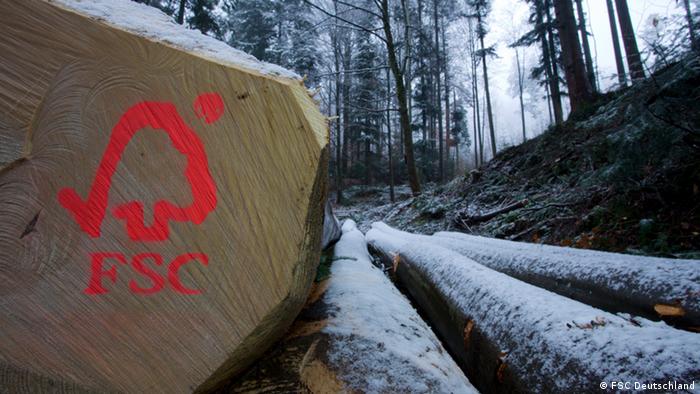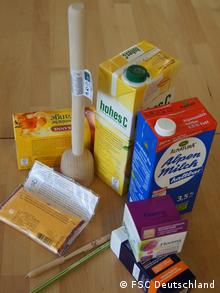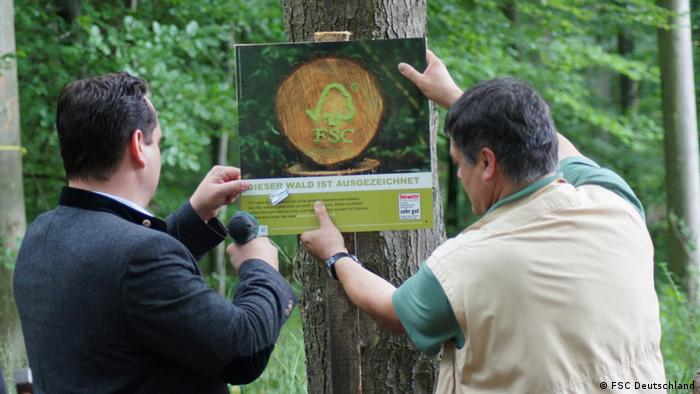Welcome
....to JusticeGhana Group

JusticeGhana is a Non-Governmental [and-not-for- profit] Organization (NGO) with a strong belief in Justice, Security and Progress....” More Details
Forest sustainability certification gains ground
- Details
- Parent Category: Africa and The World
- Category: The World
- Created on Thursday, 12 March 2015 00:00
- Hits: 7970
 Forest sustainability certification gains ground
Forest sustainability certification gains ground
Forests are not only habitat for innumerable species of animals and plants - they are also the source of many products we humans rely on. Certifying forest products as sustainable is intended to prevent overexploitation.
Around 13 million hectares of forest are being destroyed every year - that's equivalent to 35 soccer fields every minute. A third of primeval forests in Asia are already gone, and in Brazil an area twice the size of France has been deforested over the past 40 years. The worldwide lumber trade is big business - but a lot of that wood is logged illegally.
Wood is used globally to manufacture furniture, paper, cellulose and other products - while some forest is also simply being burned to make way for other land uses, like cultivation of palm oil and corn. And in many places where forests used to grow, cities and industrial areas are thriving now.
Deforestation, in addition to making habitat for species disappear, emits large amounts of greenhouse gases, contributing to perhaps as much as a quarter of global emissions. This happens as carbon stored in woody material gets released back into the atmosphere when trees are cut down.
In 1992, an international declaration was signed that nailed down basic principles of forest conservation. Yet the overexploitation continues.
So who are the good guys?
 But not all companies in the timber business are bad guys: The Forest Stewardship Council (FSC) label was created to make clear whether the forest products were harvested or produced responsibly.
But not all companies in the timber business are bad guys: The Forest Stewardship Council (FSC) label was created to make clear whether the forest products were harvested or produced responsibly.
Intended to help customers choose their product consciously, the label certifies companies if they fulfill 10 principles and associated criteria. This effort is managed by the FSC in Bonn, Germany, which aims to "promote environmentally appropriate, socially beneficial and economically viable management of the world's forests." Companies voluntarily and individually choose to become certified.
The FSC network includes environmental organizations, labor unions, representatives of civil society and indigenous groups. Within the network, all groups have equal voting powers.
"It's important for us to show that the forest is more than just the lumber that can be extracted there," says Hans-Joachim Droste. He's responsible for development and monitoring of FSC's guidelines.
Hi-tech for a healthy forest
The FSC is testing out various methods for determining whether a company deserves the label or not. That includes lab tests, to capture those wolves in sheep's clothing that may try to slip unsustainable wood past.
"In paper or a book, where it's not obvious what kind of wood has been used, we can analyze the wood fiber with a microscope, or conduct an isotopic analysis," says Droste.
Sometimes the FSC needs outside help: One of the criteria that companies must fulfill to obtain the certificate is to leave 10 percent of the area untouched. "However, often our monitors in Russia or the tropics are told that these areas are too remote for a visit," Droste says.

But new technologies can help to better detect illegal logging. The German Aerospace Center (DLR) provides high-resolution satellite images to the FSC to help monitor forests. Even in initial stages of the certification process, FSC monitors are able to observe parts of the forest that forest owners don't usually like giving them access to.
Loopholes remain
Cheap wood that's been sustainably produced: Does it exist? Ikea is one company that uses wood certified by the FSC. Still, the Swedish furniture company, among others, is being accused of clear-cutting Russian forests, including primeval forest.
Droste has taken note of such criticism. "We are aware of our weaknesses - but we're working on methods to improve the controls," he adds.
Since the foundation of the FSC, 179 million hectares of land in 80 countries have become certified. However, 4 billion hectares of the planet's surface is forest - so there's still plenty of work to do.
Date 12.03.2015
Author Karin Jäger / rk
Source: Deutsche Welle




